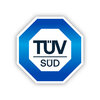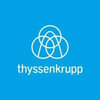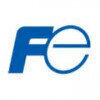


i
ABB
Work with us
![]()
Filter interviews by
ABB Project Engineer Interview Questions and Answers
25 Interview questions
I am a dedicated Project Engineer with a strong background in managing engineering projects and a passion for innovative solutions.
Over 5 years of experience in project management within the construction industry.
Successfully led a team to complete a $2 million infrastructure project ahead of schedule.
Skilled in using project management software like MS Project and Primavera.
Strong communication skills, facilitati...
Profibus is a widely used fieldbus communication protocol in industrial automation.
Profibus stands for Process Field Bus.
It is used for communication between field devices and control systems in industrial automation.
There are two main types of Profibus: Profibus DP (Decentralized Peripherals) and Profibus PA (Process Automation).
Profibus uses a master-slave communication model.
It is known for its high-speed data ...
Troubleshooting Profibus involves checking physical connections, network configuration, and device settings.
Check physical connections to ensure cables are properly connected and not damaged.
Verify network configuration settings such as baud rate, parity, and address assignments.
Inspect device settings to ensure they match the network configuration and are functioning correctly.
Use diagnostic tools like Profibus a...
Restricted Earth Fault is a type of fault in electrical systems where the fault current is limited to a specific section of the system.
Occurs when a fault current flows from a phase conductor to the earth through a restricted path
Usually detected by a relay that monitors the current imbalance between the phase and neutral conductors
Helps in quickly identifying and isolating the fault to prevent damage to equipment...
Differential earth fault is a type of fault in electrical systems where the current flowing into and out of the system is not equal due to an earth fault.
Differential earth fault protection is used to detect such faults by comparing the current entering and leaving the system.
It is important for safety as it helps prevent damage to equipment and potential electric shocks.
Examples of differential earth fault protec...
A control valve is a device used to regulate the flow of a fluid in a system by varying the size of the flow passage.
Control valves are commonly used in industries such as oil and gas, chemical, and power plants.
They can be operated manually, pneumatically, electrically, or through a combination of these methods.
The operation of a control valve involves adjusting the position of the valve plug or disc to control t...
MODBUS settings include baud rate, parity, data bits, stop bits, and slave address.
Baud rate determines the speed of communication between devices.
Parity is used for error checking and can be set to even, odd, or none.
Data bits determine the number of bits used to represent each character.
Stop bits indicate the end of a character and can be set to 1 or 2.
Slave address is used to identify the device on the network.
...
The lifecycle of a project refers to the stages it goes through from initiation to closure.
Initiation: project is defined and approved
Planning: project objectives, scope, and resources are determined
Execution: project plan is put into action
Monitoring and Control: project progress is tracked and necessary adjustments are made
Closure: project is completed and evaluated
Examples: construction of a building, developme...
The number of pages designed in HMI depends on the project requirements and complexity.
The number of pages can range from a few to hundreds depending on the project scope.
The complexity of the HMI design and functionality also affects the number of pages.
Factors such as user interface, data visualization, and system integration can impact the number of pages.
It is important to prioritize user experience and ease o...
I have worked on multiple SCADA systems including Wonderware, Ignition, and Inductive Automation.
I have experience with configuring and programming SCADA systems
I have worked with Wonderware, Ignition, and Inductive Automation
I am familiar with creating HMI screens, alarms, and trends
I have experience with PLC communication and data acquisition
I have worked on projects in various industries including manufacturing...
ABB Project Engineer Interview Experiences
13 interviews found
I applied via LinkedIn and was interviewed in Dec 2024. There were 2 interview rounds.
(2 Questions)
- Q1. Tell about yourself
- Ans.
I am a dedicated Project Engineer with a strong background in managing engineering projects and a passion for innovative solutions.
Over 5 years of experience in project management within the construction industry.
Successfully led a team to complete a $2 million infrastructure project ahead of schedule.
Skilled in using project management software like MS Project and Primavera.
Strong communication skills, facilitating co...
- Q2. Current work experience
Good experience in interview
(2 Questions)
- Q1. Cable Length for PA cables and their diameter.
- Ans.
The cable length for PA cables varies depending on the specific application, while the diameter is typically determined by the current carrying capacity and voltage requirements.
Cable length for PA cables can range from a few meters to several hundred meters, depending on the distance between the PA system and the speakers.
The diameter of PA cables is usually determined by the current carrying capacity and voltage requ...
- Q2. Type of smoke detectors.
- Ans.
There are two main types of smoke detectors: ionization and photoelectric.
Ionization smoke detectors use a small amount of radioactive material to ionize the air and detect smoke particles.
Photoelectric smoke detectors use a light beam to detect smoke particles in the air.
Dual sensor smoke detectors combine both ionization and photoelectric technologies for more comprehensive detection.
(2 Questions)
- Q1. Salary expectations
- Q2. Openness for work from the office
- Ans.
I am open to working from the office as needed for collaboration and team communication.
I believe in the importance of face-to-face interactions for effective communication and teamwork
I am flexible and willing to work from the office when required for project meetings or discussions
I understand the benefits of being physically present in the office for certain tasks or projects
(1 Question)
- Q1. What are your expectations for the Cost to Company (CTC)?
I applied via Company Website and was interviewed in May 2024. There were 2 interview rounds.
(2 Questions)
- Q1. Communication between PLC controllers and DCS
- Ans.
Communication between PLC controllers and DCS involves establishing a reliable connection for data exchange.
PLC controllers and DCS communicate through various communication protocols such as Modbus, Profibus, Ethernet/IP, etc.
Data is exchanged between PLC controllers and DCS for process control and monitoring.
Communication can be bidirectional, allowing both systems to send and receive data.
Proper configuration and pr...
- Q2. PID tunning and control
(2 Questions)
- Q1. Why do you wanna join ABB
- Q2. What make you chose abb over other companies
Interview Preparation Tips
Skills evaluated in this interview
I applied via Naukri.com and was interviewed in May 2024. There was 1 interview round.
(2 Questions)
- Q1. Previous experience and project related technical questions.
- Q2. Basic Electrical engineering questions from previous experience
Interview Preparation Tips
(2 Questions)
- Q1. What is Profibus?
- Ans.
Profibus is a widely used fieldbus communication protocol in industrial automation.
Profibus stands for Process Field Bus.
It is used for communication between field devices and control systems in industrial automation.
There are two main types of Profibus: Profibus DP (Decentralized Peripherals) and Profibus PA (Process Automation).
Profibus uses a master-slave communication model.
It is known for its high-speed data trans...
- Q2. How to troubleshoot Profibus
- Ans.
Troubleshooting Profibus involves checking physical connections, network configuration, and device settings.
Check physical connections to ensure cables are properly connected and not damaged.
Verify network configuration settings such as baud rate, parity, and address assignments.
Inspect device settings to ensure they match the network configuration and are functioning correctly.
Use diagnostic tools like Profibus analyz...
I applied via Naukri.com and was interviewed in Mar 2023. There were 2 interview rounds.

(13 Questions)
- Q1. Hazardous classification
- Q2. Environment conditions for Panel installation
- Ans.
Environment conditions such as temperature, humidity, and cleanliness are crucial for panel installation.
Temperature should be within specified range to prevent damage to components.
Humidity levels should be controlled to avoid condensation and corrosion.
Cleanliness is important to prevent dust and debris from affecting performance.
Proper ventilation is necessary to prevent overheating.
Avoid exposure to direct sunlight...
- Q3. Restricted Earth Fault -explain
- Ans.
Restricted Earth Fault is a type of fault in electrical systems where the fault current is limited to a specific section of the system.
Occurs when a fault current flows from a phase conductor to the earth through a restricted path
Usually detected by a relay that monitors the current imbalance between the phase and neutral conductors
Helps in quickly identifying and isolating the fault to prevent damage to equipment and ...
- Q4. Differential earth fault -explain
- Ans.
Differential earth fault is a type of fault in electrical systems where the current flowing into and out of the system is not equal due to an earth fault.
Differential earth fault protection is used to detect such faults by comparing the current entering and leaving the system.
It is important for safety as it helps prevent damage to equipment and potential electric shocks.
Examples of differential earth fault protection ...
- Q5. Transformer insulation class
- Ans.
Transformer insulation class indicates the temperature at which the insulation can operate safely.
Transformer insulation class is denoted by a letter (e.g. A, B, F, H) which corresponds to a maximum allowable temperature rise above ambient.
Higher insulation classes can withstand higher temperatures, providing better protection for the transformer.
Common insulation classes include A (105°C), B (130°C), F (155°C), and H ...
- Q6. Scheme to detect transformer temperature
- Ans.
Implement a scheme using temperature sensors to detect transformer temperature.
Install temperature sensors at key points on the transformer
Set up a monitoring system to continuously track temperature readings
Establish temperature thresholds for alerts and shutdowns
Implement a cooling system to regulate temperature if needed
- Q7. Intelligence control system
- Q8. Standby earth fault
- Q9. Earthed system and unearthed system
- Q10. Voltage Levels- As per standards
- Ans.
Voltage levels as per standards vary depending on the application and region, with common levels including 110V, 220V, and 415V.
Voltage levels can vary depending on the application and region
Common residential voltage levels include 110V and 220V
Industrial voltage levels are typically higher, such as 415V
International standards like IEC and ANSI provide guidelines for voltage levels
- Q11. Types of MCCB to explain
- Ans.
Molded Case Circuit Breakers (MCCBs) are types of circuit breakers that provide protection against overcurrents.
Thermal-magnetic MCCB: Trips when a current overload or short circuit is detected.
Electronic MCCB: Uses electronic components for more precise and adjustable protection.
Compact MCCB: Smaller in size for limited space installations.
Adjustable MCCB: Allows for manual adjustment of trip settings.
Motor protection...
- Q12. Lighting Calculation- Manually
- Q13. Factors to consider for Lighting Calculation
- Ans.
Factors to consider for lighting calculation include type of space, desired lighting levels, fixture efficiency, and lighting layout.
Type of space (office, warehouse, retail, etc.)
Desired lighting levels (measured in lux or foot-candles)
Fixture efficiency (lumens per watt)
Lighting layout (spacing and placement of fixtures)
Natural lighting sources (windows, skylights)
Color rendering index (CRI) for accurate color repres...
Interview Preparation Tips
- Switchgear Component
- Transformers
- Panels
- relay protection
- MCCB
- Lighting Design

(1 Question)
- Q1. What is the control valve and operation
- Ans.
A control valve is a device used to regulate the flow of a fluid in a system by varying the size of the flow passage.
Control valves are commonly used in industries such as oil and gas, chemical, and power plants.
They can be operated manually, pneumatically, electrically, or through a combination of these methods.
The operation of a control valve involves adjusting the position of the valve plug or disc to control the fl...
(1 Question)
- Q1. Salary expectations
I applied via Naukri.com and was interviewed in Dec 2022. There were 2 interview rounds.

(11 Questions)
- Q1. Introduce yourself briefly?
- Ans.
I am a highly skilled and experienced Project Engineer with a strong background in managing complex engineering projects.
Over 10 years of experience in project management and engineering
Proficient in utilizing project management software and tools
Strong leadership and communication skills
Proven track record of successfully delivering projects on time and within budget
Experience in coordinating with cross-functional tea...
- Q2. What projects you have done in previous company
- Ans.
I have worked on various projects in my previous company, including the construction of a new office building and the implementation of a software system for project management.
Construction of a new office building
Implementation of a software system for project management
- Q3. What is lifecycle of project
- Ans.
The lifecycle of a project refers to the stages it goes through from initiation to closure.
Initiation: project is defined and approved
Planning: project objectives, scope, and resources are determined
Execution: project plan is put into action
Monitoring and Control: project progress is tracked and necessary adjustments are made
Closure: project is completed and evaluated
Examples: construction of a building, development of...
- Q4. What are the industrial communication protocols
- Ans.
Industrial communication protocols are standards for data exchange between devices in industrial automation and control systems.
Some common industrial communication protocols include Modbus, Profibus, DeviceNet, Ethernet/IP, and CANopen.
These protocols enable devices from different manufacturers to communicate with each other and exchange data.
Industrial communication protocols can be wired or wireless, and can operate...
- Q5. What are the settings required in MODBUS
- Ans.
MODBUS settings include baud rate, parity, data bits, stop bits, and slave address.
Baud rate determines the speed of communication between devices.
Parity is used for error checking and can be set to even, odd, or none.
Data bits determine the number of bits used to represent each character.
Stop bits indicate the end of a character and can be set to 1 or 2.
Slave address is used to identify the device on the network.
Examp...
- Q6. Maximum speed in modbus
- Ans.
The maximum speed in Modbus depends on the baud rate and cable length.
Modbus speed is measured in baud rate
Higher baud rates allow for faster data transfer
Cable length can also affect the maximum speed
For example, at 9600 baud rate, the maximum cable length is 1200 meters
- Q7. How many device add in modbus
- Ans.
The number of devices that can be added in Modbus depends on the network architecture and the number of available addresses.
The maximum number of devices that can be added to a Modbus network is 247.
The number of available addresses depends on the type of Modbus protocol used (RTU or TCP/IP).
The network architecture also plays a role in determining the number of devices that can be added.
It is important to ensure that ...
- Q8. Types of modbus communication
- Ans.
Modbus communication types include RTU, ASCII, and TCP/IP.
RTU (Remote Terminal Unit) is a serial communication protocol that uses binary code to transmit data.
ASCII (American Standard Code for Information Interchange) is a serial communication protocol that uses ASCII characters to transmit data.
TCP/IP (Transmission Control Protocol/Internet Protocol) is a network communication protocol that uses Ethernet to transmit d...
- Q9. On which scada you are worked
- Ans.
I have worked on multiple SCADA systems including Wonderware, Ignition, and Inductive Automation.
I have experience with configuring and programming SCADA systems
I have worked with Wonderware, Ignition, and Inductive Automation
I am familiar with creating HMI screens, alarms, and trends
I have experience with PLC communication and data acquisition
I have worked on projects in various industries including manufacturing and ...
- Q10. What is maximum Input output handle
- Ans.
The maximum input output handle refers to the maximum number of inputs and outputs that a device can handle.
The maximum input output handle varies depending on the device and its specifications.
It is important to consider the maximum input output handle when selecting a device for a project.
For example, a PLC may have a maximum input output handle of 256 inputs and 256 outputs.
Another example is a microcontroller with ...
- Q11. How many pages designed in HMI
- Ans.
The number of pages designed in HMI depends on the project requirements and complexity.
The number of pages can range from a few to hundreds depending on the project scope.
The complexity of the HMI design and functionality also affects the number of pages.
Factors such as user interface, data visualization, and system integration can impact the number of pages.
It is important to prioritize user experience and ease of nav...
Interview Preparation Tips
Skills evaluated in this interview

What is relay..who it's work what is conductor tell about plc,scada,hmi
(1 Question)
- Q1. What is ur first project tell about it ..plc motor logic with 5 sec delay
- Ans.
My first project involved designing a PLC motor control system with a 5-second delay for operational efficiency.
Utilized a PLC (Programmable Logic Controller) to automate motor operations.
Implemented a 5-second delay to prevent motor overload during start-up.
Designed the logic using ladder diagrams for clear visualization.
Tested the system to ensure the delay function worked as intended.
Integrated safety features to pr...
(1 Question)
- Q1. Where are form,when u start a carrer, i like to join in this comany
Interview Preparation Tips
Top trending discussions






ABB Interview FAQs
Tell us how to improve this page.
ABB Interviews By Designations
- ABB Project Engineer Interview Questions
- ABB Financial Analyst Interview Questions
- ABB Software Engineer Interview Questions
- ABB Software Developer Interview Questions
- ABB Design Engineer Interview Questions
- ABB Management Trainee Interview Questions
- ABB Finance Specialist Interview Questions
- ABB Maintenance Engineer Interview Questions
- Show more
Interview Questions for Popular Designations
Overall Interview Experience Rating
based on 18 interview experiences
Difficulty level
Duration
Project Engineer Interview Questions from Similar Companies
ABB Project Engineer Reviews and Ratings
based on 93 reviews
Rating in categories
|
Project Engineer
713
salaries
| ₹5.9 L/yr - ₹16.3 L/yr |
|
R&D Engineer
333
salaries
| ₹11.6 L/yr - ₹21 L/yr |
|
Financial Analyst
280
salaries
| ₹3.4 L/yr - ₹7.9 L/yr |
|
Design Engineer
257
salaries
| ₹4.2 L/yr - ₹10 L/yr |
|
Software Engineer
215
salaries
| ₹14.7 L/yr - ₹27.2 L/yr |
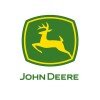
John Deere

CNH ( Case New Holland)
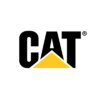
Caterpillar Inc
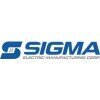
Sigma Electric Manufacturing Corporation
- Home >
- Interviews >
- ABB Interview Questions


